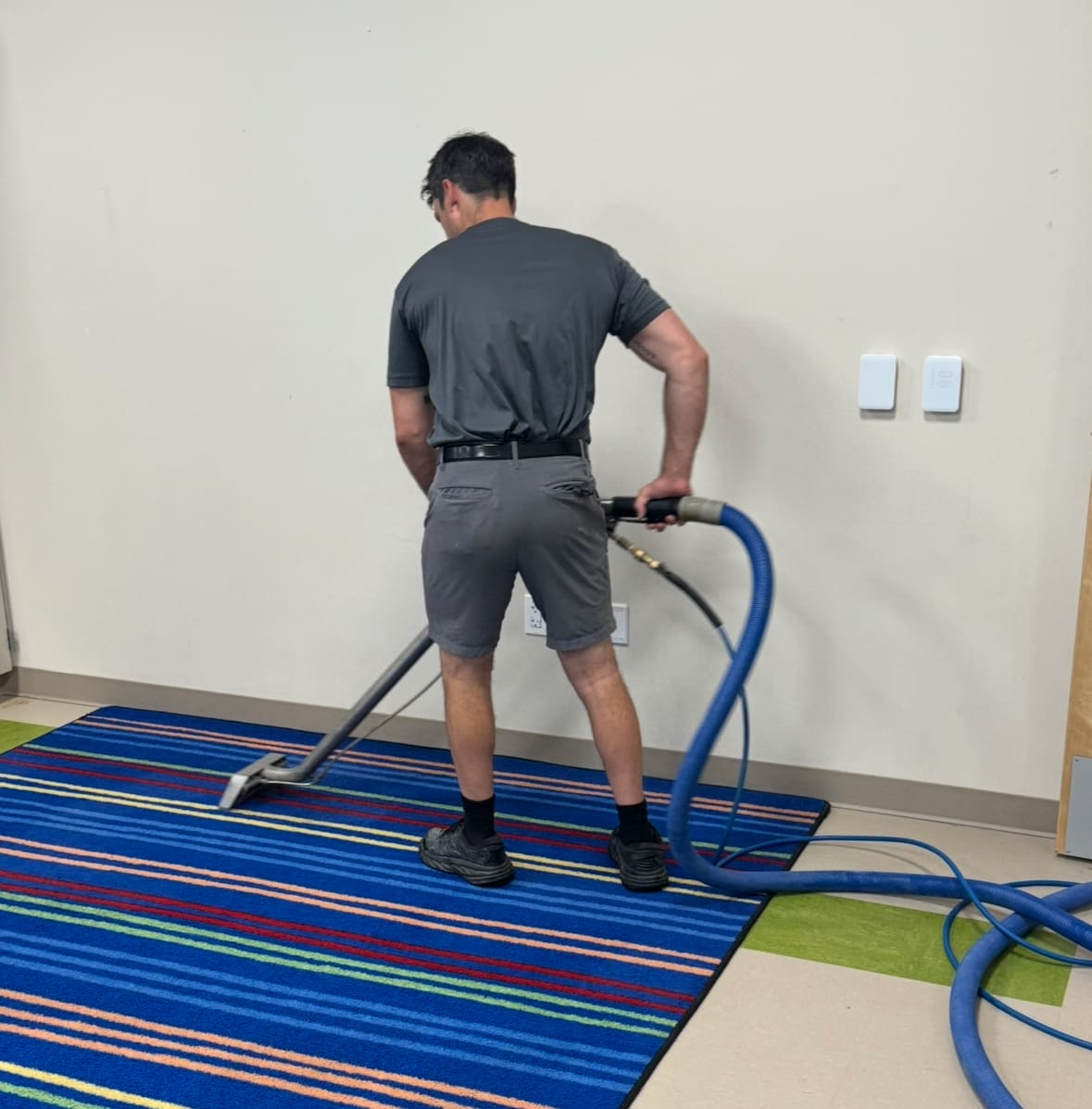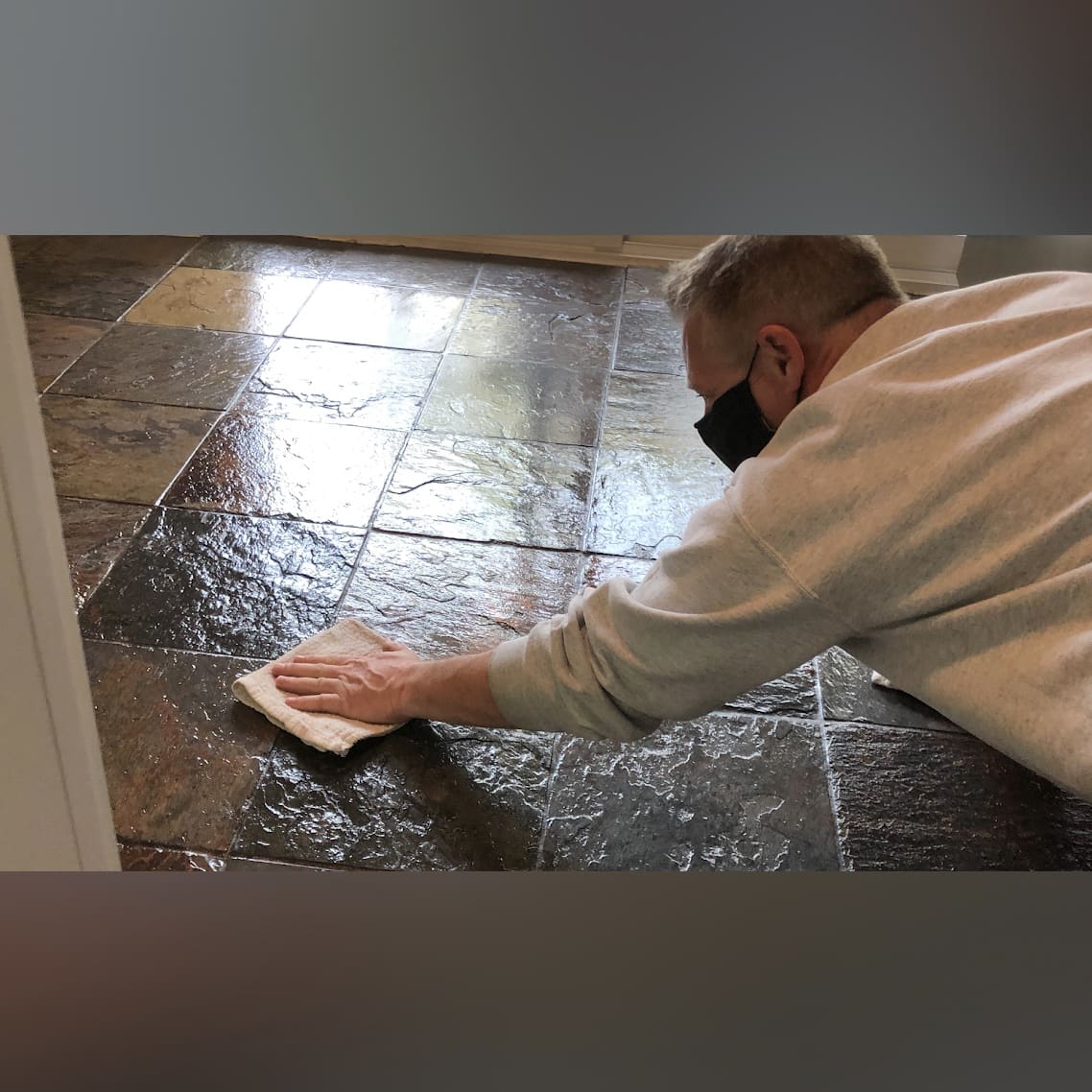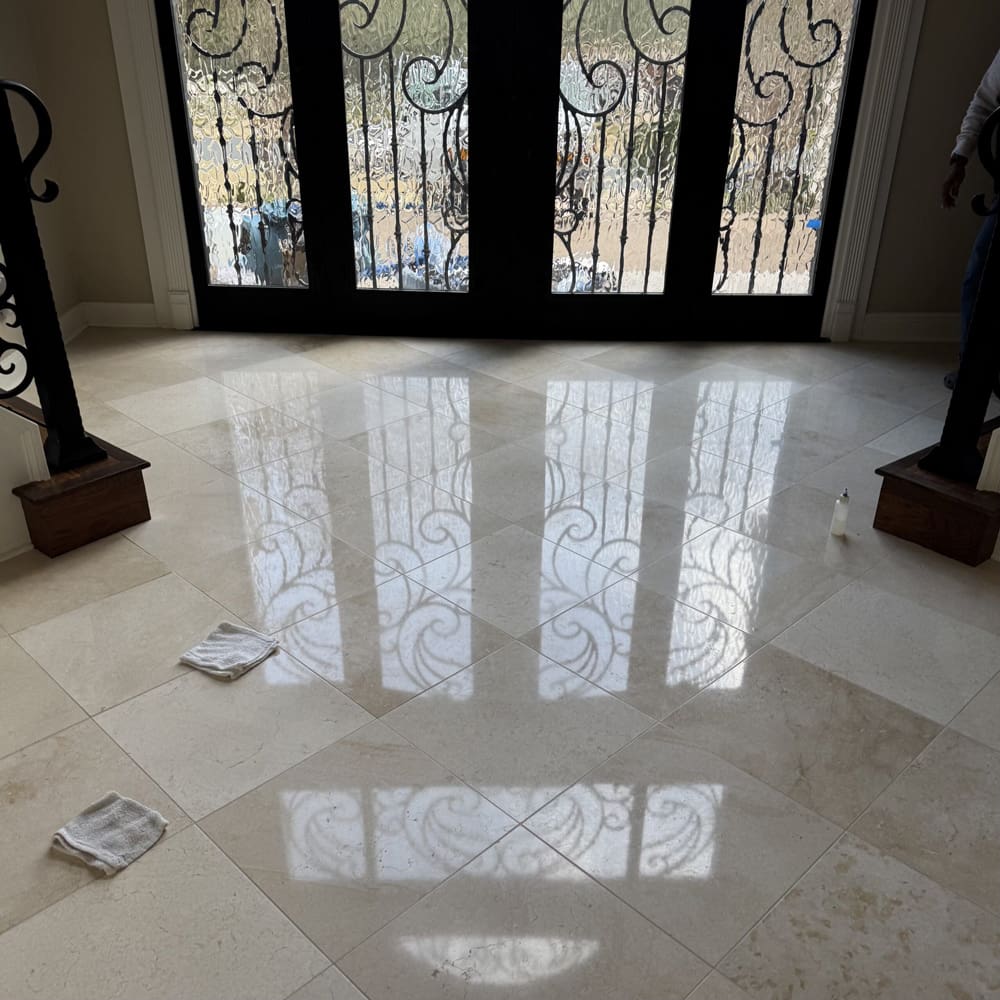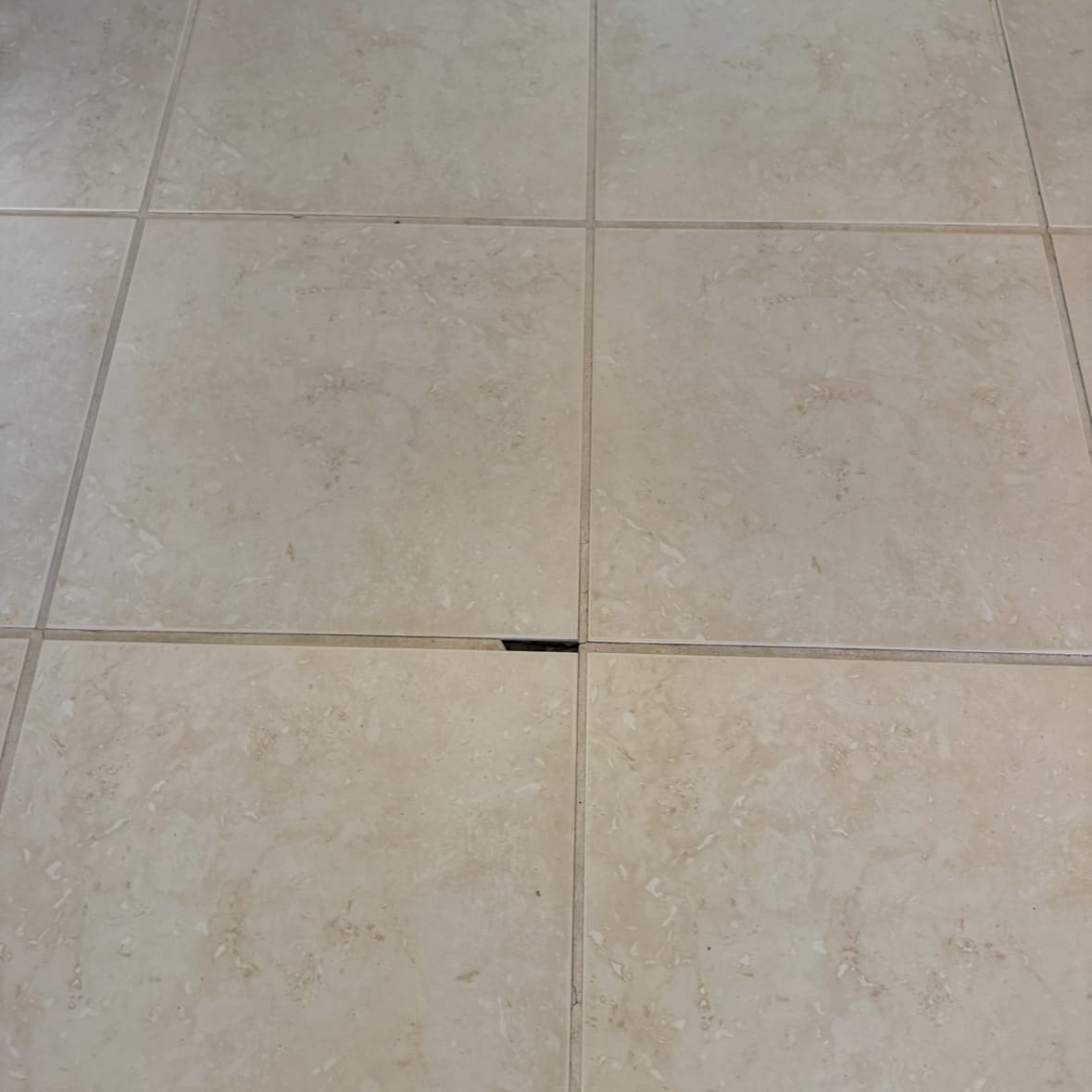Natural stone protection from staining...
Natural Sealing and enhancing | Austin Texas
There are a variety of sealers and protective treatments available for stone. Some reduce porosity with no visible change to the look of the stone. Some enhance color. All of them inhibit staining. Which type of sealer will best suit your needs depends on many factors…

About Natureal Stone Sealers
Natural Stone is Porous
All stones are, more or less, absorbent. One may say that diamonds or gemstones are not absorbent. That’s right, but a gemstone is not actually a stone. It is actually made of one crystal of one single mineral.
All other (less noble) stones are the composition of many crystals,
either of the same mineral, or of different minerals bonded together. The “space” in between these molecules of minerals is mostly what determines the porosity of a stone. The porosity of stone varies greatly, and so does, of course, their absorbency. Some of them are extremely dense, therefore their porosity is minimal.
To Seal or Not to Seal...?
The application of an impregnating sealer to highly-polished marble and travertine, or polished high-density granites, may not be necessary–but when in doubt, consider this: it doesn’t hurt to have it sealed. If it turns out that sealing the stone does, in fact, prevent some staining, you’ve saved yourself the cost of a stain removal service.
What Does an Impregnating Sealer Do?
Contrary to what your perception may be when you hear the word sealer, impregnating sealers are below-surface products that will not alter in any way, shape or form the original finish produced by the factory or offer protection from etching. They will only go inside the stone by being absorbed by it (assuming that the stone is porous enough to allow this to happen) and will clog its pores, thus reducing its natural absorbency rate. This will help prevent possible accidental spills of staining agents from being absorbed by the stone.
How Long Will Sealing Last?
There is no absolute rule of thumb when it comes to the durability of any sealer. Generally speaking, in an interior environment, most quality impregnating sealers will last 2-5 years or more. Environment and usage plays a big role. Stones exposed to intense heat or direct sunlight, as well as surfaces that are subject to a lot of use or abuse, will probably need to be re-sealed more often. Some “granites” are so porous that no sealer will do a satisfactory job sealing them 100% for an extended amount of time.
Color Enhancing Sealers
While impregnating sealers will not alter the appearance of your stone, a color-enhancing (impregnating) sealer will protect the stone while bringing out its color, giving it a wet (i.e. darker, not glossy) look. It will, at the same time, provide good protection from water-based staining. Color enhancing sealers are typically used on tumbled marble, low-honed limestone and travertine, honed (black) granite, etc.
The DIY Sealer-Check Test
To find out if your stone is perfectly sealed, pour some water on it and wait for approximately 20 minutes to half an hour, then wipe it dry and wait for a minute or two. If the surface of the stone did not darken, it means that the stone is still perfectly sealed. Be sure to test various areas, especially those areas that get more use. If your stone does need to be resealed, give us a call.
How Can We Help You Today?
Reach out to us for a free estimate on natural stone sealing and protecting, maintenance, or any other natural stone and tile care services throughout the Austin TX area. Use our CONTACT FORM or call (512) 632-1621 today!
The results were nothing short of spectacular. My floors look brand new! The attention to detail and the care he took in cleaning every nook and cranny was truly impressive. I highly recommend Sante Fe Floor Care to anyone seeking top-notch cleaning services, especially for new construction homes. They exceeded my expectations in every way.
Mr. and Mrs. James Armstrong
Let's Talk About Results
How Our Commercial Carpet Cleaning Austin Services Keep Classrooms Clean and healthy
Helping Doss Elementary School Stay Fresh and Clean At Santa Fe Floor Care, we believe that...
How Our Commercial Carpet Cleaning Austin Services Keep Classrooms Clean and healthyRead MoreSlate Floor Cleaning & Sealing in Austin, TX
Homeowners across Austin and Central Texas trust Santa Fe Floor Care of Austin for professional natural...
Slate Floor Cleaning & Sealing in Austin, TXRead MoreStone Floor Cleaning and Polishing in Austin, Texas
Restore Your Natural Stone Floors to Their Original Beauty—Guaranteed Tired of dull, etched, or stained travertine,...
Stone Floor Cleaning and Polishing in Austin, TexasRead MoreGrout Repair Service in Austin Texas
Re-grouting service in Austin Texas At Santa Fe Floor Care, we have a strong commitment to providing...
Grout Repair Service in Austin TexasRead More


